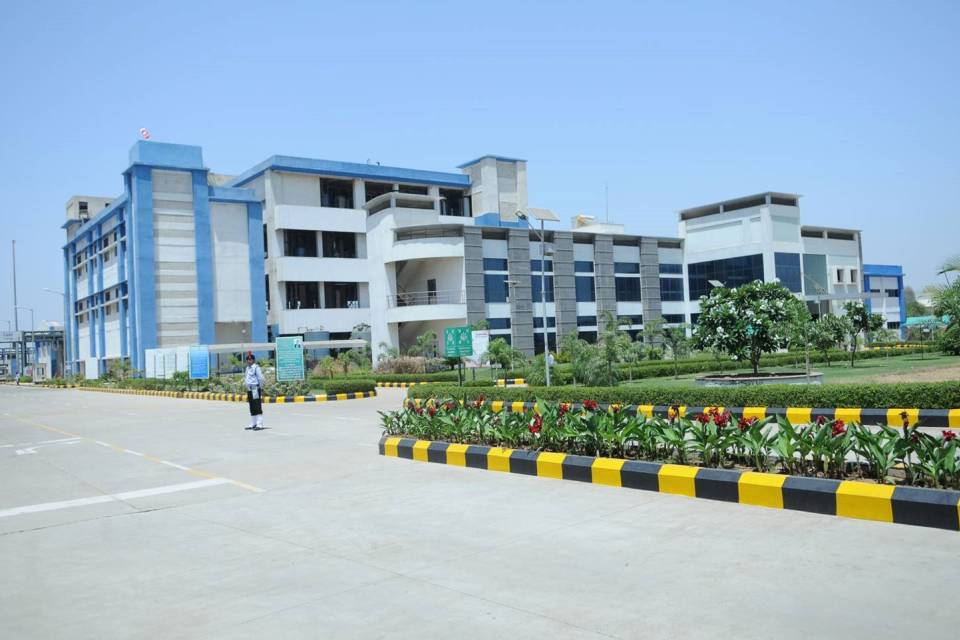ECCA’s New President Mónica Teixeira Shares Perspective of EU’s Crop Protection Industry
AgriBusiness Global recently interviewed the European Crop Care Association’s (ECCA) new President Mónica Teixeira about her vision for the organization.
With 25 years of experience in the industry, she currently works as the Product Safety, Regulatory, and R&D Director for Ascenza. Teixeira also served at the Portuguese Ministry of Agriculture as well as Syngenta.
Now as ECCA’s newly elected President, she talked about how the ECCA will be taking on the challenges and new developments affecting the European Union’s crop protection industry.
ABG: Can you tell me a little bit about your background and your involvement with ECCA up to this point?
Mónica Teixeira (MT): My involvement with ECCA began in 2019 when I joined the Board. Since then, I have been actively engaged in shaping discussions on regulatory policies, promoting fair market access, and advocating for the untapped potential of post-patent plant protection products (PPPs) in European agriculture.

Mónica Teixeira, ECCA President.
As ECCA’s newly elected President, I am committed to further demonstrating – and strengthening – our industry’s role in helping Europe meet its strategic objectives, which include strengthening the bloc’s competitiveness, strategic autonomy, and efforts to address climate change.
ABG: What is your vision for ECCA in 2025 and beyond?
MT: My vision for ECCA is to position the post-patent PPP industry as a key player in strengthening the competitiveness and strategic autonomy of European agriculture, while ensuring that our farmers have the right tools to meet essential climate and sustainability targets.
In the face of geopolitical uncertainties and shifting trade policies, the EU must prioritize a resilient agricultural sector that is less dependent on food imports. ECCA will increasingly serve as a key interface, fostering dialogue, collaboration and regulatory coherence, helping farmers’ access affordable and effective plant protection solutions to remain competitive and resilient to supply chain shocks.
Additionally, I envision ECCA leading discussions on regulatory reform. To unlock our industry’s untapped potential, we need a streamlined, fair and efficient regulatory framework. By removing intra-EU barriers and simplifying regulatory processes, we can ensure that farmers across Europe have equal access to high-quality plant protection solutions.
Lastly, we must leverage technological advancements. AI and smart technologies can significantly enhance precision farming, reduce environmental impact and increase efficiency. ECCA will advocate for policies that enable our industry to adopt these innovations while maintaining high sustainability and safety standards.
ABG: What are three top challenges you see in the crop protection market for the EU? What are the solutions to those challenges?
MT: Our members are not asking for a lot, and our priority remains addressing two long-existing challenges, which to date, have created intra-EU barriers to trade and unfair competition. These challenges contradict the current direction of the European Commission, which itself recognized the broader issue of European competitiveness in its Competitive Compass policy strategy released in February.
Among its key objectives are lowering intra-EU barriers within the single market and ensuring regulatory simplification for businesses operating within the bloc – exactly what ECCA is advocating for as regards the treatment of post-patent PPPs.
The most pressing challenge we see today concerns data transparency and the correct interpretation of existing regulations, particularly Regulation (EC) No 1107/2009.
Currently, the regulation is being incorrectly applied, leading to unfair extensions of data protection periods beyond what is intended, which negatively impacts competition and the market entry opportunities for small and medium-sized enterprises, as well as companies dealing in post-patent plant protection products.
The solution to this challenge is straightforward yet essential: the Commission must strictly adhere to the original wording and objectives of Regulation 1107/2009. Specifically, the starting date of data protection for necessary studies should coincide with the date those studies are first used by competent authorities for renewal purposes – either upon renewal or upon the extension of authorization, whichever occurs first. By returning to the intended interpretation of the regulation, we will restore fairness, prevent unnecessary delays and create a more balanced competitive landscape that benefits both the industry and European farmers.
Another challenge our industry is facing is regulatory fragmentation across EU member states. In some of the member states we see national competent authorities developing and implementing contrasting internal regulations, which clearly contradicts the aim of a common European regulatory framework for PPPs.
Crucially, the lack of a harmonized regulatory framework results in inconsistent market access for post-patent PPPs, which ultimately harms European farmers’ competitiveness. Addressing these issues is particularly important and timely, given the additional challenge of ensuring Europe’s strategic autonomy in agriculture amid global trade uncertainties and rising protectionist policies that threaten Europe’s food supply and agricultural exports.
ABG: What are two exciting developments for the EU crop protection industry? How did these two developments happen?
MT: One of the most exciting developments in the EU is the growing momentum around biopesticides, and the potential synergies with post-patent PPP.
In 2020, the biopesticides market was valued at €3.5 billion, with this figure set to rise to €17.1 billion by 2031. Interestingly, conventional post-patent PPPs can play an important role in the transition toward biologicals.
Given the growing availability of post-patent biopesticides and the ongoing investments from ECCA members in R&D for innovative conventional and biological solutions, we can facilitate a sustainable transition to a new farming model. This supports European farmers in meeting EU sustainability goals and strengthening European food security.
Another significant development in the plant protection industry today is the increasing use of AI and smart technologies in agriculture. AI-powered precision farming tools are revolutionizing our industry by enabling targeted PPP applications, optimizing resource use and reducing the environmental impact in the process. Notably, machine learning models can now provide early warnings for pest outbreaks, helping farmers take proactive measures, especially during climate-induced events like floods and heatwaves.
Working regulations once again play an essential role in delivering this smooth process. To achieve a competitive synergy between biopesticides, AI, and smart technologies in agriculture and post-patent PPPs, we need predictability in the registration process by allocating adequate resources – ensuring timely approvals and consistent support for innovation.
Additionally, regulation and regulators must develop the necessary regulatory tools to accommodate the inclusion of these smart technologies in the AI and product risk assessment evaluation process, fostering a more integrated and forward-looking approach.
ABG: Do you envision the global geopolitical changes affecting the ECCA’s goals?
MT: In the context of rising global geopolitical tensions, defending the value of post-patent PPPs in Europe plays a strategic role in ensuring the security and competitiveness of the agricultural sector.
In the coming months, ECCA will continue to engage with European policymakers to support the ongoing innovation efforts of ECCA members, while delivering a predictable regulatory framework that protects their manufacturing capabilities within Europe.
I am truly excited to lead ECCA in this next chapter for our industry. This period, while exciting, will also certainly be challenging for us and our members, notwithstanding the growing economic and geopolitical uncertainties.
However, we are hopeful that our industry will finally be equipped with the regulatory tools needed to not only operate within these turbulent times, but – crucially – ensure that our efforts today will lead us to a more competitive, resilient and sustainable agricultural sector tomorrow.






